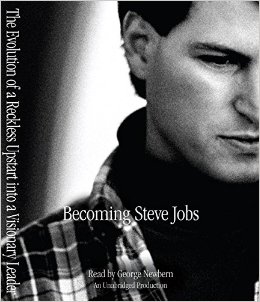Perspective
 Friday, April 10, 2015 at 4:22PM
Friday, April 10, 2015 at 4:22PM  I’ll just come right out and say it. I’m 58 years old. While some people are obsessed with hiding their age, I’m kinda proud I made it this far and don’t mind bragging a little bit. Those who knew me in my youth are probably a little surprised I’m still sucking wind. Well, they don’t know my wife, I guess. Aside from being the love of my life, she’s the person that keeps me out of trouble (for the most part). And, while she’s brilliant at what she does, she’s typical of most in our age group when it comes to technology. We both learned to use a slide rule in high school and our college computer courses involved punch cards, but that’s where our technical similarity ends. She uses just enough tech to do her job while I chose technology as a profession years ago mainly because I wasn’t getting enough of it when it was just a hobby. My youngest daughter (16) has been raised in a time when the ubiquitous Internet is a simple fact of life and smartphones are harder to live without than a missing limb. Her first mobile device was an iPhone 3GS and her first computer was a Core i5, 13” MacBook Pro. Recently, I was prompted to give some thought to the differences in our perspectives regarding technology by reading the latest biography of Steve Jobs, “Becoming Steve Jobs”.
I’ll just come right out and say it. I’m 58 years old. While some people are obsessed with hiding their age, I’m kinda proud I made it this far and don’t mind bragging a little bit. Those who knew me in my youth are probably a little surprised I’m still sucking wind. Well, they don’t know my wife, I guess. Aside from being the love of my life, she’s the person that keeps me out of trouble (for the most part). And, while she’s brilliant at what she does, she’s typical of most in our age group when it comes to technology. We both learned to use a slide rule in high school and our college computer courses involved punch cards, but that’s where our technical similarity ends. She uses just enough tech to do her job while I chose technology as a profession years ago mainly because I wasn’t getting enough of it when it was just a hobby. My youngest daughter (16) has been raised in a time when the ubiquitous Internet is a simple fact of life and smartphones are harder to live without than a missing limb. Her first mobile device was an iPhone 3GS and her first computer was a Core i5, 13” MacBook Pro. Recently, I was prompted to give some thought to the differences in our perspectives regarding technology by reading the latest biography of Steve Jobs, “Becoming Steve Jobs”.
The latter part of the book spends a few thousand words summarizing Steve Jobs’ accomplishments. In doing so, the author cited some facts about the technological explosion that occurred over the brief time Jobs lived and how Jobs contributed to it. It’s the former point I will address here.
The book made a comparison so striking I had to re-read it a couple of times to make sure I hadn’t made a mistake. At the time the book was written, in 2013 & 2014, the newest and most powerful iPhone was the iPhone 5S. The author stated that it was as powerful as the multi-million dollar Cray Supercomputer of 20 years earlier and ran the same operating system (UNIX). Think about it. Today, millions of people spend $500 – $600 for a smartphone to carry in their pocket or purse with the same computing horsepower that in 1994 was available to only the most elite research institutions requiring many cubic feet for the computer and its required auxiliaries. In 2034 will we look back from the iPhone of the day and make a similar comparison? In any case, the point of all this that I find most interesting is how differently my wife, daughter and I reacted to this factoid.
While I found the comparison interesting and somewhat surprising, I really wasn’t taken aback after I thought about it for a minute or so. After all, I have been in the technology business for over 30 years. I’ve made it my business to understand Moore’s Law and keep track of CPU, RAM and storage architectures and their speeds. My wife, conversely, while a mechanical engineer by degree and corporate executive by trade, had trouble believing an iPhone was as powerful as a 20 year-old Cray and required a bit more evidence. When I provided it she was flabbergasted. When I told my 16 year-old daughter, her response was, “What’s a Cray?” That is when I had this epiphany. Is “Generation X” so jaded by the cheap availability of technology that it is nothing more than a simple commodity to them? Do they feel about smartphones the same way baby-boomers like myself feel about radio, television and frozen pizza? Surely, those things were magical to my parents. This also begs the question, “What technology development will seem as magical to my daughter as the iPhone was to me?” Recent history tells us that technological advancement continues as Moore’s Law predicts and may even be accelerating. Is IBM’s “Watson” (the supercomputer that convincingly stomped a host of Jeopardy champions) or something like it soon to be as commonplace as iPhones? Projecting Moore’s Law twenty years into the future says yes. Mobile devices of the future may be more akin to pocket-sized, personal artificial intelligence than anything resembling todays smartphone. In 1995, the vast majority of Internet access was dial-up at 56Kb/sec. If bandwidth increases accordingly, we’ll all have 10 gigabit connections by 2035 and cellular data speeds will be similar. The AI in your pocket will have instant access to a world of information and content we can only fanticize about today.
See where this is going? The entropy is staggering. What capabilities will that sort of computing horsepower and data availability enable? What new storage and battery technology will evolve? Pondering these questions gives me a headache. This is what makes my final point all the more astounding. In 1995, Steve Jobs accurately predicted what 2015 would look like.
Reading “Becoming Steve Jobs” with all its references to the early days in Silicon Valley reminded me of a movie released by Magnolia Pictures a couple of years ago named “Steve Jobs: The Lost Interview”. It was filmed in 1995, two years before Jobs returned to Apple and began what was to become the greatest comeback of all time. I remember watching the movie with my wife when it first became available on iTunes. We sat in front of the TV, mouths agape, as we watched Steve accurately predict the proliferation and importance of the Internet, the downward slide of desktop computing and rise of our mobile “Post PC” era. The amazing part was the absolute certainty of his belief. He saw twenty years into the future the same way you or I see an approaching stop sign when out for a drive. Talk about perspective!
All this leads me to wonder if there’s some teenager out there right now who possesses the same clairvoyance and drive to succeed as Steve Jobs. An argument can be made for Jeff Bezos or Elon Musk being the next to carry the technology torch, but while their contributions have been and will continue to be ground-breaking, it remains to be seen if they can deliver something as transformative as the iPhone, a single device that changed the lives of millions while turning its industry on its head. Steve Jobs did this more than once. The Apple ][ virtually invented the personal computer. Before it, computing was relegated to professionals working on mainframes and the geekiest of geeks who were willing to construct their own computer from a home-brew recipe or a kit. The iPod and iTunes store transformed the music industry by selling songs for 99¢. Instead of being forced to purchase an entire album (CD) for $15, users could pick and choose only the tracks they wanted and the iPod enabled users to carry their entire music library with them. The iPhone changed the cell phone paradigm where we had to pay service providers $6 per month for a weather app and text messages cost over $100 per kilobyte when you did the math. Now almost all cell plans include some form of unlimited talk and text and the user purchases apps from third parties (mostly Apple and Google) with literally millions to choose from. AT&T, Verizon, T・Mobile and Sprint no longer control the user experience or revenues from apps. So, can Mr. Musk or Mr. Bezos equal the transformative effect Mr. Jobs had on multiple industries? Maybe, but not so far. I’m more inclined to believe this person hasn’t made him or herself known just yet. Being alive to witness Steve Jobs was quite fortunate. Seeing someone else equal his feats would be truly miraculous. I hope I’m still around when they do.



Reader Comments